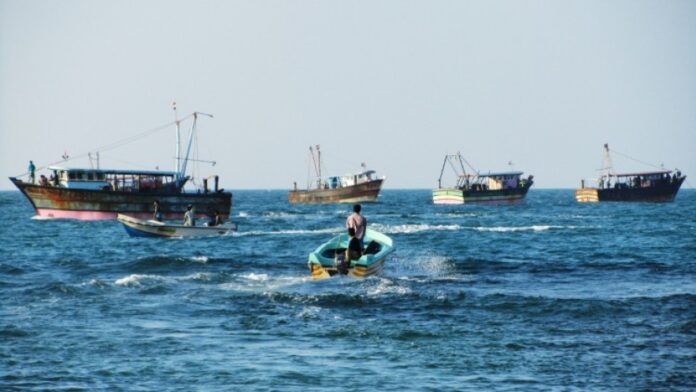:Sri Lanka’s inland and lagoon fishermen—who make up one of the country’s most vulnerable yet vital livelihoods—are now eligible for a much-needed safety net through a newly introduced insurance scheme by the Agricultural and Agrarian Insurance Board. This initiative aims to offer relief to thousands of fishing families who continue to battle economic hardship, unpredictable weather patterns, and a lack of state support.
According to official data, over 120,000 individuals are engaged in lagoon and inland fishing across Sri Lanka, depending solely on this traditional vocation to feed their families and sustain their lives. Despite their contribution to the local economy and food security, these communities have long operated on the margins, with little to no formal protection or welfare.
The newly announced insurance scheme offers Rs. 1.2 million in compensation in the event of sudden death due to accidents while fishing or during adverse weather events. Fishermen will need to pay a modest annual premium of Rs. 2,000 to benefit from the cover. In addition to fatal accidents, the policy also includes compensation for total or partial disability, and even serious injuries that may occur during or outside of active fishing periods.
This move comes at a time when many fisherfolk are reeling under economic pressure. Rising costs of fishing gear, lack of infrastructure, limited market access, and erratic weather have all made their survival increasingly difficult. Most fishermen operate small, non-motorized boats and often risk their lives navigating shallow inland waters, particularly during the monsoon seasons.
In the past, successive governments have attempted to support the fishing community through kerosene subsidies, concessional loan schemes, and the provision of fishing gear and equipment. However, much of this assistance has been ad hoc and often delayed due to bureaucratic inefficiencies and poor coordination among agencies. The discontinuation of the kerosene oil subsidy—once a crucial lifeline for small-scale fishermen—has further pushed them into financial distress, especially in rural and remote areas.
The new insurance scheme is being hailed as a step in the right direction, offering some level of security to these fishermen and their families. However, experts stress that comprehensive and sustained support—including fuel subsidies, access to modern equipment, and proper market linkages—are still essential if Sri Lanka’s inland fishing sector is to be revived and safeguarded.
While the insurance initiative provides a ray of hope, the broader plight of the inland fishing community underscores the urgent need for a national policy framework that guarantees social protection, livelihood sustainability, and long-term development for this neglected sector.
